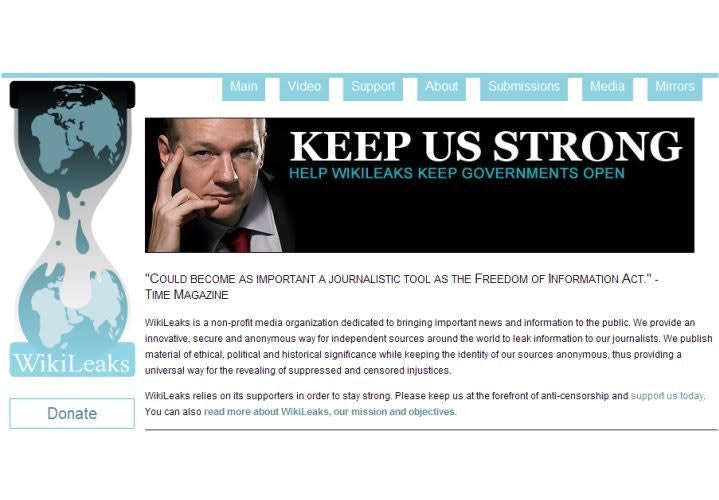I am astoundedhow few people have really grasped the impact of what has been unleashed by WikiLeaks and its Australian tool of a founder.
What this egomaniac has wrought is a new front of anarchy. Ever since the Battle of Seattle — the 1999 WTO riots in the Emerald City — police have been facing down Black Bloc anarchists during almost every major protest or demonstration. But now the battlefield has changed. You are now about to face the Black Bloc and others of their ilk on the Internet.
Julian Assange and his fellow weasels are not communists or al-Qaida sympathizers, they are anarchists. They believe in tearing down the Western World's institutions.
Assange has chosen his targets to do the most damage to America's image in the world and to erode world order. First, he hit the military. Then he hit the State Department. At this writing, he's making threats to unleash another document dump from a major U.S. financial institution. Which means he's hit or plans to hit every favorite target of Western anarchists: the military, the government, and business.
The one favorite anarchist target that WikiLeaks has not hit is law enforcement. But don't think that means that it isn't on their radar. Soon you will flip on your TV and see that WikiLeaks or some other site has dumped secret documents from some major federal, state, or municipal law enforcement agency.
This is inevitable. The anarchists who shoot ball bearings out of slingshots at you during riots are generally very computer savvy. And it doesn't take a genius to do what Assange has done. Just about anybody with knowledge of how to build a Website and an upload link can do it.
So there are going to be hundreds of these sites launching this year. Assange has inspired an anarchist movement on the Internet, and no one knows where this is going to end. But I can tell you that every police department and sheriff's office in America is a target.
And it's not like Assange performed some major feat of computer wizardry to acquire all the secrets that have made him the darling of anarchists everywhere. He reportedly acquired all of his material from one disaffected employee of the United States Army.
Security experts believe that a PFC gave Assange his information. Let me restate that for emphasis: One lowly private first class reportedly downloaded some of America's most critical secrets and sent them to Wikileaks.
Intelligence analyst Bradley Manning allegedly stole all of the secrets dumped on WikiLeaks by downloading them to Lady Gaga CDs while stationed in Iraq. Investigators say he brought rewritable CDs into work , erased them, and then burned the secrets onto the discs.
If Manning is guilty of this treason, I hope they hang him. But there's a bigger problem here than just one guy's alleged crimes against America. The real issue is that a PFC had access to diplomatic cables that should have been available only to senior State Department officials. In other words, U.S. operational security is a joke.
The following is a question for all police chiefs and sheriffs nationwide: What disaffected employee has access to your most important secrets?
Now I know what you're going to say: I have no secrets. But I'm going to throw the BS penalty flag for 15 yards on that one.
Not all secrets are sinister. But they can be made to look sinister. Consider how bad IA reports on incidents that didn't prove to be conclusive would look in the press. What about personnel reports? What about details of ongoing investigations? You have secrets that you don't want published.
So the question you have to answer for yourself is: How secure are your secrets?
Do you allow employees to bring in CDs, thumb drives, iPods, smartphones into sensitive areas? If you do you're asking for a leak.
Are student interns working around your office? Do they have access to sensitive data? Have they been vetted?
Finally, take a hint from the Chinese. They are the world's greatest hackers. They hit the Pentagon daily and take away treasure troves of data. So how do the Chinese protect their secrets? If it's somewhat secret, they keep it on a non-networked computer. If it's really secret, they keep it on paper only. It's much harder and much more hazardous to hack a locked file cabinet than it is to download a digital file.
If law enforcement leaders don't start taking measures to guard their most sensitive secrets, then they're not going to be secrets much longer.
Related:
Arrested WikiLeaks Founder Among Interpol's Most Wanted
Seattle Siege: Learning From the Chaos













